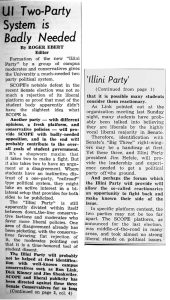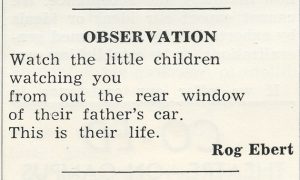By the beginning of his second semester, Roger was on his way to what became a life-long career as a professional writer, with an emphasis on commentary and criticism. He initially served as managing editor for Spectator, an alternative student newspaper. He also contributed stories and reviews to the magazine Chaff.
Independent Voice
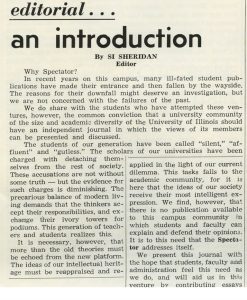
In Spectator’s first issue in February 1961, co-founder Si Sheridan announced the paper’s intention to be an independent voice for student and faculty opinion, to counter what the editors saw as the conservatism of The Daily Illini.
Watchful Eyes
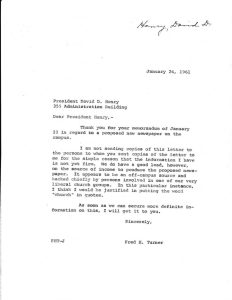
Even before the paper appeared, the Spectator had aroused the suspicion of university administrators, as shown in this January 23 letter from Dean of Students Fred Turner to President David D. Henry.
Literary Criticism
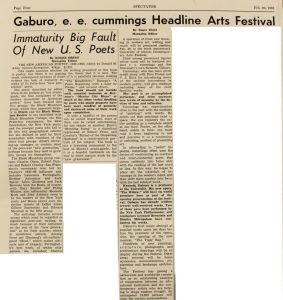
Roger used the very first issue of Spectator (February 20, 1961) to provide news and commentary on new poetry, music, and painting at the University’s nationally important Contemporary Arts Festival. This review of an anthology of new poetry shows that he was already a careful and critical reader of the contemporary literary scene, one prepared to call out some of its shortcomings.
Social Commentary
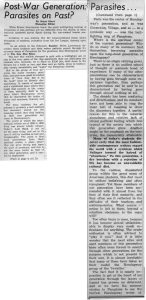
By the second issue of Spectator, Roger’s literary interests quickly intersected with broader social observations when he critiqued the superficiality of his academic contemporaries in the post-War generation.
Poetic Interlude
A short poem from the March 6, 1961 issue of Spectator.
Hull House
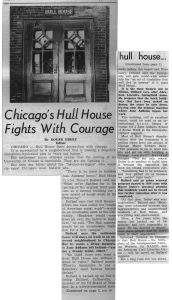
Roger’s April 10, 1961, Spectator article described a fight against Chicago Mayor Daley and the University. As such, he played an integral role in the campaign to save Jane Addams’s Hull House from demolition. Hull House was “in the way” of the new Congress Circle campus (now the University of Illinois at Chicago). Roger showed he was ready to provide support for those who stood in the way of that era’s grand planners.
Upstate Tensions
By the April 17, 1961, Spectator, Ebert gave voice to the complaints from students at the Navy Pier campus regarding lack of respect from the Urbana campus.
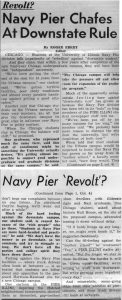
Minimum Wage
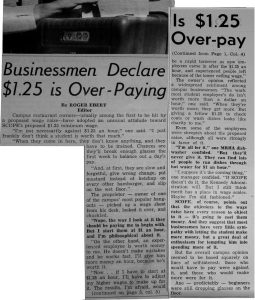
On first appearance, the subject of Roger’s April 24, 1961, article might seem quaint—Local employers complained about a proposed hike student wages, to $1.25 per hour. Yet, the fact this amount would be nearly $10 in today’s economy makes it exceedingly au courant.
Missed Calling?
Student wages weren’t all that were on Roger’s mind at the time. He also offered this little short story which, with a bit of elaboration, would have made a good episode of
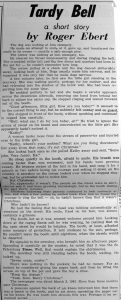
Twilight Zone, then in its second season.
Perennial Problem
Roger’s last Spectator byline shows that the political splintering in student government was no different in the spring of 1961 than it was in the 1870s, nor even in the current academic year.
